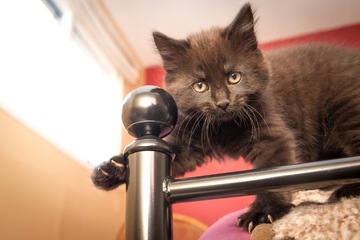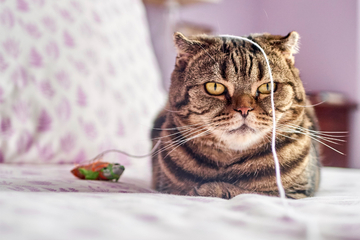Why is my cat being aggressive all of a sudden?
Every cat has its own temperament and personality, parts of which can change rapidly based on its mood. What is behind your cat's habit of getting suddenly angry, though, and what can you do about it?

If you have ever owned a cat, you will have been in this exact situation: Despite everything being fine, your kitty has suddenly flipped out and started attacking you. It's a bizarre, yet common behavior, and one that you're right to wonder about - after all, for those of us who have children, or even just house visitors, such behavior can be a very real and very nasty problem.
Cats are not usually violent animals, but can sometime get a little too excited or snappy for our liking. Why do cats get aggressive all of a sudden, and what can you do about it?
Why is my cat being aggressive all of a sudden?
If your cat is getting aggressive and angry suddenly and in an outwardly violent way, something needs to be done. To fix the problem, though, your best bet is to first establish why your cat is being such a demon. There are a variety of potential reasons, some of which are easier to solve than others, and a variety of solutions to fit each reason.
Cats generally get aggressive out of fear, stress, irritation, or playfulness. By establishing which reason fits best, and acting on it, you'll be able to make things better quicker than may otherwise have been possible.
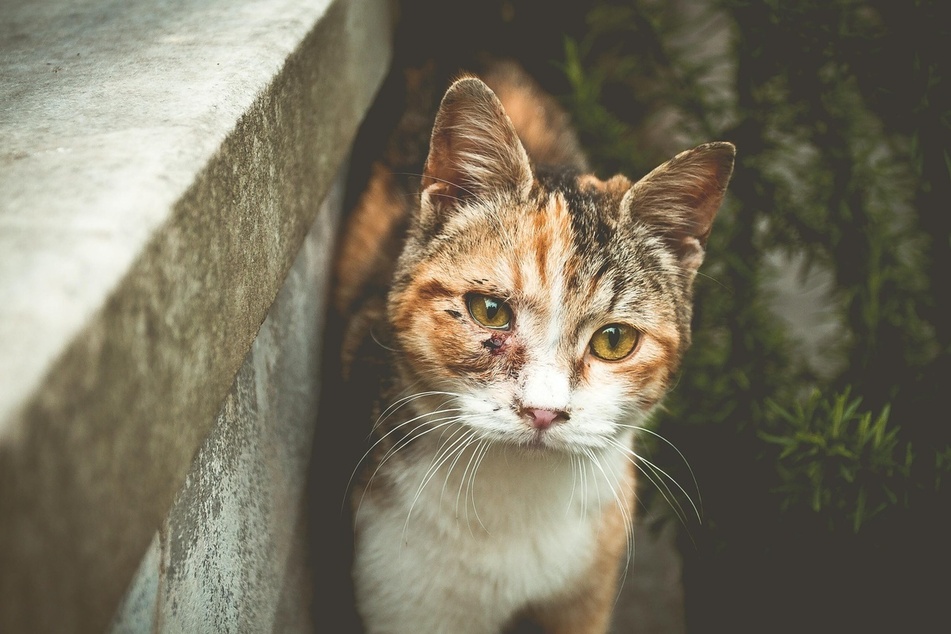
Pain
Cats often become aggressive when they're in pain. Unluckily for us, though, cats are very good at masking their pain and, as a result, it will often seem like cats suddenly become irritable and aggressive. More specifically, pain resulting from disease, abscesses, parasites, or tumors may be triggering the cat's change in demeanor.
If you can't figure out what's causing your cat's discomfort or disturbing disposition, it's a good idea to take it to the vet. A more thorough examination that includes blood work or X-rays will quickly reveal if there is anything wrong with your pet.
If everything seems normal, then at least you know that it's not pain that's making your cat act out.
Cuddles and pets
If a cat gets aggressive when you try to pet it, then its bad behavior might be triggered by human touch. Your cat might be trying to express its displeasure with its teeth, or a swat of its paw. Many cats don't like lots of cuddles or pets, and sometimes people misinterpret the signals cats give.
If, for example, a cat jumps on your lap, you might think that it's coming by because it wants to be petted. It's possible, however, that your kitty isn't looking for attention, just a comfortable place to doze. This kind of aggression is easily prevented, though, and all you really need to do is watch your cat's body language.
Every displeased cat sends a series of warnings before acting aggressively. If your cat starts to display a sign of aggression, then you should leave it be.
Fear
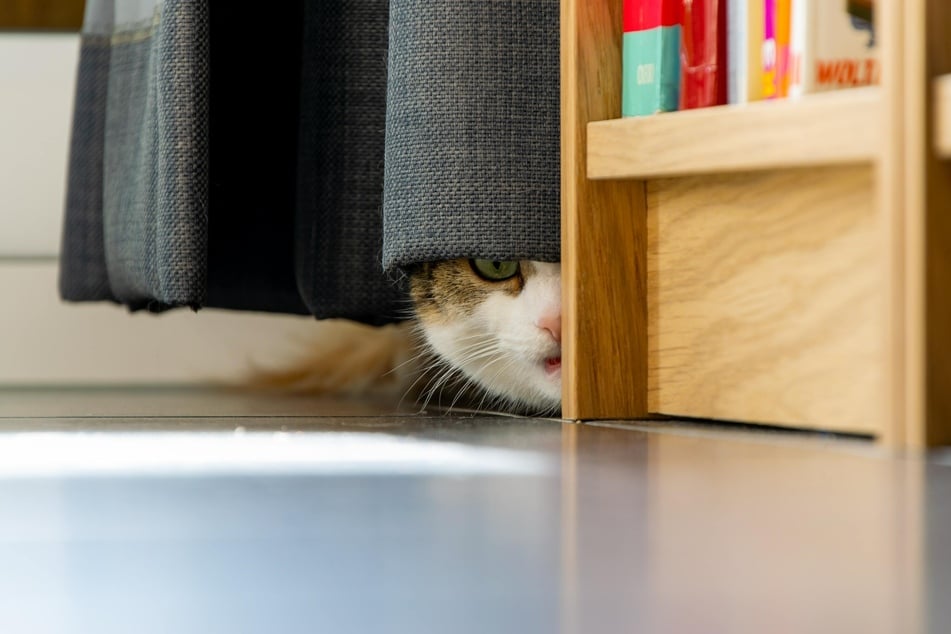
It is very common for cats to get aggressive when they're scared. As a result, every cat needs a certain amount of freedom to feel comfortable, as well as a place to retreat to when they are scared.
If they don't have their very own safe space, their fear often turns into aggression. If cats feel cornered and therefore unsafe, then their "fight" mechanism kicks in because they don't feel like they have a place to flee.
As a cat owner, you should also keep an eye on your pet. If it looks agitated, make sure that it has a way out of an overwhelming situation.
Defense
It's not uncommon for cats to react to perceived aggression with violence. If a cat is used to dealing with violent behavior from other animals or humans (if it is a rescue or shelter cat, for example), then it might react to any seemingly aggressive behavior on your part with more aggression.
This is another reason why it is really important to use positive reinforcement when training your cat, as opposed to punishment.
Playfulness
At times, a cat might seem aggressive when it actually just wants to play. It's important to acknowledge, though, that cats who scratch and attack a lot during playtime need to be dealt with appropriately. After all, this kind of behavior is learned and should be discouraged.
It is possible to train cats not to engage in this kind of behavior. One way to do this, for example, is by making an unpleasant sound whenever your cat hurts you.
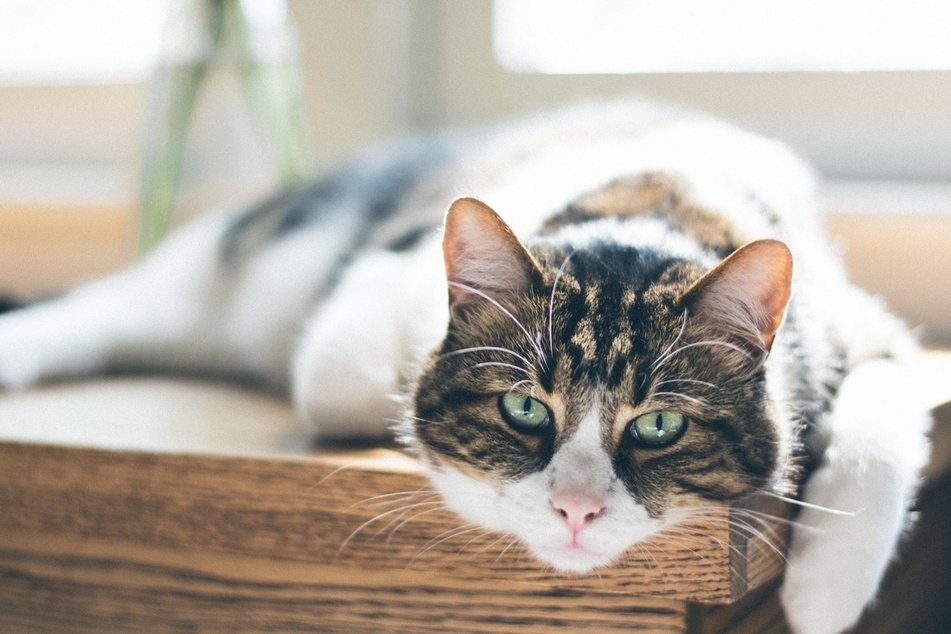
Elderly cats
If your cat happens to be a bit older, it is not uncommon for it to show increasingly aggressive behavior. Just like humans, older cats are more sensitive to pain than their younger counterparts. One example of this increased sensitivity is that senior cats also tend to suffer from arthritis, which causes discomfort when walking and jumping. Even petting can suddenly become unpleasant.
If you want to do something good for your cat in its old age, you should make sure that it has peace, quiet, and lots of good spots to hide. You should also be gentler when handling it.
Change-related stress
If the cat suddenly shows a new, more aggressive behavior within a fairly short period of time, a change at home might be to blame. Have you brought a new pet into the family, or has one of your kitty's fellow furry friends passed away? Is there a new baby in the house? Or a new partner?
Maybe your cat feels threatened by a fellow animal in the house or in the neighborhood? If this is the case, you should try to keep stressors to a minimum in your cat's environment.
If you can't do so, try to give your cat an extra place to withdraw when it's upset.
What to do with an aggressive cat

Cats often make it very obvious why they are angry and what they are reacting to, you just need to know for the signs and reasons to look out for. Once you have established the cause of aggression, it's quick and easy to fix the problem - and rather disciplining a child!
Here's what you should do when your cat gets aggressive:
- Offer it a place to withdraw to like a hiding place or an elevated perch.
- Keep your cat busy, and help it maintain a healthy mental and physical balance.
- Be loving, patient, and calm with your cat, and avoid using aggressive cues during training.
- Leave an aggressive cat alone. Don't try to restrain an angry kitty or bend it to your will.
- Reward good behavior, and ignore your cat's undesirable behavior and tantrums.
- Take your cat to a veterinarian for a check-up to make sure it isn't experiencing any physical pain.
- Watch your cat's body language carefully to avoid provoking aggressive behavior.
By simply establishing why your cat is aggressive, and choosing the right solution, you'll have far fewer problems with your feline friend.
Stay calm among sudden aggression in cats
Cats always have a reason for acting aggressively, and it's a human's job to recognize what's spurring them on. What you shouldn't do is spring into immediate action whenever your cat gets a bit tense. First, see if your furry friend just simply needs some peace and quiet - if so, it may just calm down all on its own.
Take a step back, a deep breath, and accept that dealing with sudden and unnecessary violence is just simply a part of the life of a cat owner. It'll all be okay, you'll learn in time how to react effectively so such attacks of cat aggression.
Cover photo: Unsplash/MusicFox Fx

